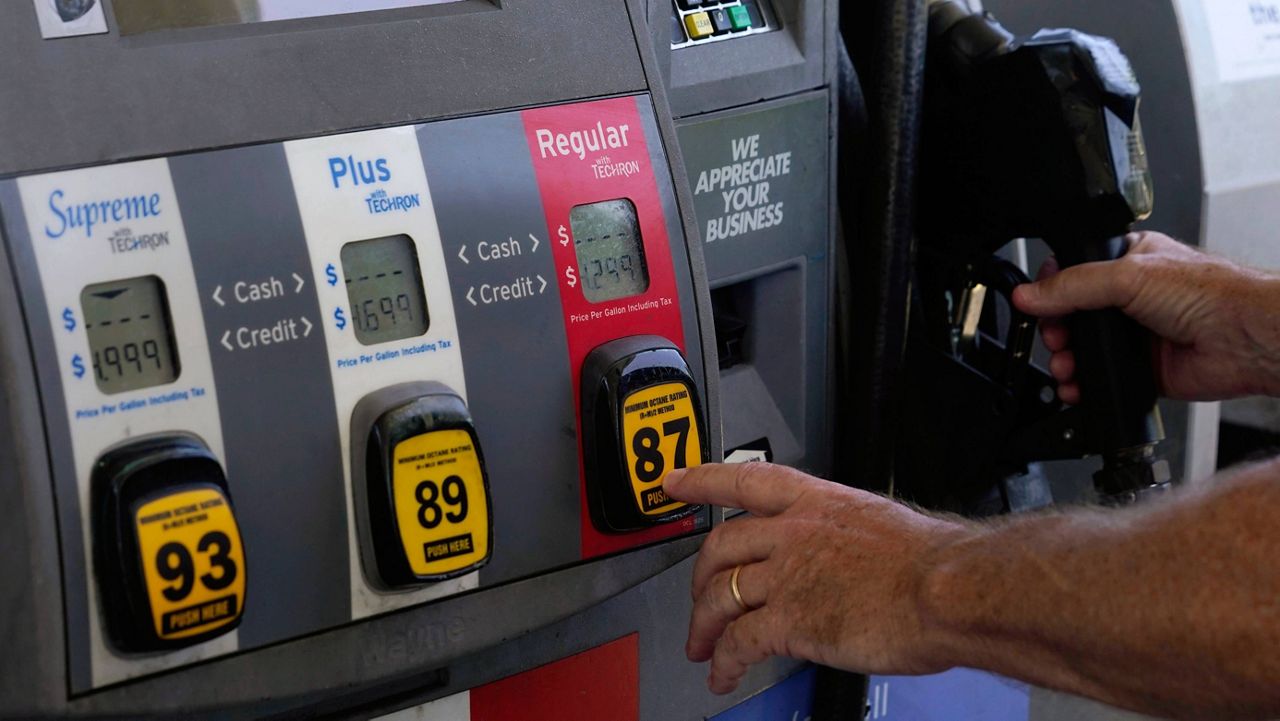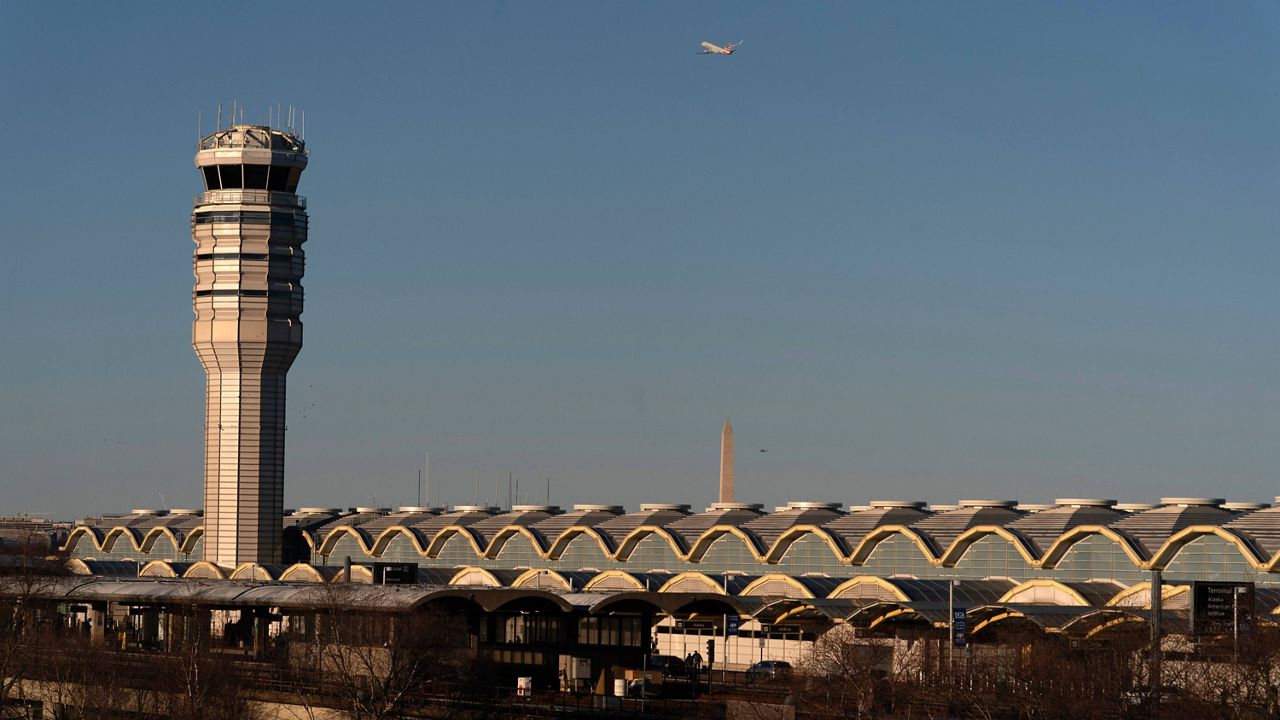As gas prices nationwide continue to hit record highs – and experts predict that they could go even higher as we enter the summer months – the House of Representatives passed a bill aimed at alleged combatting price gouging at the pump.
The bill would make it "unlawful" to sell fuel "during a period of an energy emergency" at a price that "indicates the seller is exploiting the circumstances related to an energy emergency to increase prices unreasonably" and is "unconscionably excessive." It would also allow the Federal Trade Commission to take action if price gouging is discovered.
The legislation, known as the Consumer Fuel Price Gouging Prevention Act, passed in a nearly party-line 217-207 vote, with four Democrats breaking ranks and joining every House Republican to oppose the bill. Democratic "no" votes included Reps. Kathleen Rice, D-N.Y., Lizzie Fletcher, D-Texas, Jared Golden, D-Maine, and Stephanie Murphy, D-Fla.
As of Thursday, according to AAA, the average price for a gallon of regular gas nationwide is $4.59, a 17-cent increase from the week before. All 50 states have average gas prices of more than $4 per gallon.
AAA blamed the increase on the high price of crude oil, and noted that the seasonal switch to the more expensive summer blend of gasoline, which can add a cost of anywhere from 7-10 cents per gallon, is underway.
“The high cost of oil, the key ingredient in gasoline, is driving these high pump prices for consumers,” Andrew Gross, an AAA spokesperson, said earlier this week. “Even the annual seasonal demand dip for gasoline during the lull between spring break and Memorial Day, which would normally help lower prices, is having no effect this year.”
The bill is unlikely to pass the Senate, where it would need 10 Republicans to support the measure in a 50-50 chamber, but Thursday's vote will no doubt will serve as a key point of messaging for Democrats ahead of the midterm elections. Republicans have blamed Democrats and President Biden's policies for an increase in gas prices, while Democrats have sought to fault Russia's invasion of Ukraine, which disrupted global fuel supply, as well as accuse oil companies of price gouging, citing record profits.
"What's infuriating is that this is happening at the same time that gas and oil companies are raking in record profits, and then putting those dollars into stock buybacks," said Rep. Kim Schrier, D-Wash., who co-sponsored the bill, adding: "My constituents, they just deserve a fair market. And what's happening right now feels wrong. It feels like price gouging."
"At a time when people across the country are feeling the pinch at the gas pump, Congress needs to be doing all it can to bring down costs for American families," she said.
ExxonMobil, Chevron and other major oil companies announced surging profits totaling more than $40 billion in the first quarter of the year, a fact Democrats repeatedly cited in floor debate. Many of the companies are spending billions on stock buybacks and dividend payments to investors.
“Big Oil is price gouging families because they can,″ Rep. Katie Porter, D-Calif., another co-sponsor of the bill, said. “Enough is enough.″
Republicans and industry groups called the bill misguided, saying there is no evidence of price gouging. Oil is a global commodity and prices are set on the global market.
GOP lawmakers say the answer to higher gas prices is to increase production here in the United States.
Louisiana Rep. Steve Scalise, the No. 2 House Republican, called the bill an attempt by Democrats "to distract and shift blame from the administration’s self-inflicted energy and inflation crisis" and branded the bill a "socialist price-fixing scheme that hurts small businesses and consumers the most."
The American Exploration and Production Council, a lobbying group that represents independent oil and gas producers, called allegations of price-gouging false and counter-productive.
The FTC has conducted numerous investigations that have shown that changes in gasoline prices are based on market factors — not illegal behavior, said Anne Bradbury, the group’s CEO.
The vote on the House bill comes as Interior Secretary Deb Haaland said she will release a long-delayed, five-year plan that allows Interior to conduct new offshore oil and gas lease sales. The current plan expires June 30, and administration officials had not said when or if a replacement would be released, even as they canceled three offshore lease sales scheduled in the Gulf of Mexico and off the Alaska coast.
Haaland told the Senate Energy Committee the new plan will be made public by June 30. The plan does not issue specific leases or authorize any drilling project.
“As we take this next step, we will follow the science and the law, as we always do,″ Haaland said Thursday, vowing a “robust and transparent review process that includes input from states, the public and tribes.″
The Biden administration has come under pressure to increase U.S. crude production as fuel prices spike because of the pandemic and the war in Ukraine.
Biden also faces pressure from Democrats and environmental groups urging him to do more to combat climate change, even as his legislative proposals on climate and clean energy remain stalled in a sharply divided Congress.







